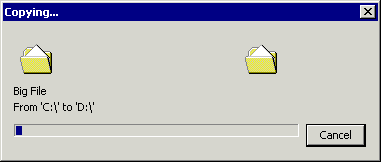7 Ways To Use Psychology To Stop Procrastinating Right Now

Some of us are better at being productive than others, but even the best of us struggle with procrastination. This article will address some easy ways to push through your procrastination and conquer your to-do list. First, let's define procrastination.
What is Procrastination?
Procrastination is the act of putting something off to deal with in the future. In other words, you're postponing it. It's a common problem we all face in our personal lives and our work lives.
Today I hope to help you address it to be more productive.
How Can I Stop Procrastinating?
There are lots of ways to reduce your procrastination. While not all of them will work for everyone, there are thankfully a lot of different strategies. Now let's dive in and expand on each of them with the help of psychological research to show why these work.
Here's the list of ways to stop procrastinating:
1. Break it into Smaller Tasks
Before I start anything I make a list of the tasks I need to do. Sometimes, I have a list of different small tasks, and other times it's a complicated task with many elements. Segmenting your tasks into smaller chunks makes it much easier. Seeing smaller steps makes it far less intimidating when you finally get started.
Planning a way to tackle a large project is also still an effective way to get started on a task. I consider outlining my articles as an important step before I write them. It's all part of the same process.
2. Do the Hardest Task First
When you have a list of different items to tackle, pick the most difficult one. Often that is the one we neglect. Because we put off addressing it, we are actually taking away the focus on our easier tasks and increasing our anxiety.
The invisible work that you're avoiding is actually increasing your Mental Load.
Mental Load refers to how many different tasks are going on in your brain at a time. It's often used to refer to invisible labor that women engage in managing a household, but it can apply to your job too.
When you have too many tasks on your plate you'll feel stressed and that can reduce your productivity. This is a common problem for women who engage in a lot of emotional labor as well as in the workplace.
3. Work in a Different Location
We know from research in Memory Psychology that different work settings and work environments can trigger us to engage in the same behavior and improve our memory. This is referred to as Situational Memory. If you always working in your bedroom with the same distractions, then staying focused in that setting will be difficult.
When I was a university student I loved working in the library to hammer out my research papers because there was little distraction. Even checking my phone was less of a habit in the library than it was at home. Mix it up if you can. Even changing rooms can help you build better habits.
4. Reward your Progress
Don't be afraid to take breaks. In fact, setting a timer is a great way to get through procrastination. Let's say you have to clean your house. That might take you an hour or so to sweep and vacuum. Instead of wearing yourself out all at once, set a 30 minute time to clean then set a 5-minute break to drink water or check your phone.
Positive Reinforcement is the act of introducing a benefit to reward good behavior. It's a great way to stay motivated and complete your tasks.
5. Monitor your Progress
Progress bars are super helpful. Think of the last video game or form you filled out online. Was there a small bar showing you what percent of completion you were at? Most likely there was one.
Video games and computers use progress bars because we find them rewarding. In fact, in a survey people said they thought progress bars were more satisfying. Seeing a progress bar also kept people more engaged. You can use that same strategy to motivate yourself with a checklist to note progress.

6. Get Someone to Hold You Accountable
Verbalizing your goals is important, especially to someone else. When you tell someone that you need to do something they keep you more accountable. In fact, in one study researchers found that participants were 65% more likely to complete a goal when they had an accountability partner.
One of humanity's greatest traits is our ability to help each other. You don't have to do everything alone. Even just sitting beside someone while I'm quietly working helps me focus.
7. Keep a Positive Mindset
Positive thinking will help you in lots of ways. For one, it can help with stress management. When you're less stressed you can be better equipped to focus and increase productivity. You'll also have more energy to complete your tasks. Another benefit is that a positive mindset can reduce procrastination when you forgive yourself. As per the results of a scientific study conducted by Michael J.A.Wohl, participants were better at preventing procrastination when they forgave themselves.
Negative thinking tends to be circular and doesn't lead to action. By taking a positive mindset you're pushing yourself into action sooner.
Conclusion
That's a wrap! There are a lot of ways to prevent procrastination, just find what works for you. You may have to try more than one approach to know what works best. Now, take these new skills and get going on whatever projects you need to tackle.
You've got the tools, and I believe in you.
Opinions and Perspectives
The mental load explanation really validates why we struggle sometimes.
Love how they explained the psychology behind each strategy. Makes them easier to remember.
Breaking down tasks helps but sometimes makes simple things seem more complicated.
These strategies work better when I adapt them to my personal style rather than following them strictly.
Started tackling the hardest task first and it's changed my whole day structure.
The forgiveness aspect hit home. I waste so much energy feeling guilty about procrastinating.
I struggle with the accountability partner idea because I don't want to burden others.
The progress bar psychology is interesting. Maybe that's why I love to-do list apps so much.
Anyone else find that different times of day work better for different tasks?
Changing locations really does help reset your brain. Even moving to a different room works.
Started implementing these strategies last week and already seeing improvement in my work habits.
I've noticed my procrastination gets worse when I'm overwhelmed with choices.
The positive mindset tip feels a bit simplistic for chronic procrastinators like me.
The study about accountability partners is eye-opening. Time to find myself a productivity buddy!
I find the checklist method super satisfying. Crossing things off really motivates me.
Working in different locations helped me associate certain places with productivity.
The forgiveness aspect is underrated. Being hard on ourselves just creates more resistance.
Started using my phone's timer for work sessions and it's surprisingly effective.
These tips are helpful but I think understanding why we procrastinate is equally important.
Never considered how mental load affects productivity. No wonder I procrastinate more when life is chaotic.
The accountability partner idea worked until my partner started procrastinating too!
I implemented the reward system but had to be strict about timer settings to avoid overindulging in breaks.
Love the scientific backing for these strategies. Makes them feel more legitimate than just good advice.
Interesting how they connect procrastination to memory psychology. Makes me think about habit formation differently.
Anyone try combining these strategies? I use location change plus timer method and it works great.
The progress bar psychology is fascinating. I started drawing little progress bars in my notebook and it actually helps!
I've found that different strategies work for different types of tasks. Creative work needs a different approach than admin stuff.
The positive mindset approach seems oversimplified. Sometimes procrastination is about deeper issues.
Having an accountability partner has been crucial for me, especially for creative projects that don't have set deadlines.
The mental load explanation really resonates. It's like having too many browser tabs open in your brain.
I wish they'd included more about how to deal with digital distractions specifically. That's my biggest struggle.
The situational memory concept explains why I can't work at my kitchen table anymore. Too many meal associations!
I've started treating my brain like a video game character that needs regular rewards and breaks. Works surprisingly well!
Breaking tasks down helps, but sometimes I get lost in the details and lose sight of the bigger picture.
Anyone else find their procrastination gets worse when working from home? The boundaries are so blurry now.
The part about forgiveness reminds me that being kind to ourselves is actually practical, not just feel-good advice.
I wonder if different personality types respond better to different anti-procrastination strategies?
Sometimes I think we overcomplicate it. Just starting with anything, even for 5 minutes, often breaks the spell.
The idea about changing rooms is brilliant. I've started designating specific spots for specific types of work.
I find the hardest task first approach actually increases my anxiety and makes me avoid starting altogether.
Never thought about how negative thinking creates a cycle. That explains a lot about my work patterns.
The accountability thing is so true. Just telling my partner what I plan to do makes me more likely to follow through.
Setting timers has been life-changing for me too. It's like giving myself permission to stop makes it easier to start.
Would love to see some research on how digital distractions specifically impact procrastination these days.
I appreciate that they mentioned not all strategies work for everyone. Took me years to find my groove.
The section about mental load really explains why women often struggle more with procrastination. We're usually juggling so much!
I've noticed different locations work better for different tasks. Coffee shops for creative work, library for focused reading.
My problem isn't starting tasks, it's staying focused. Any suggestions for maintaining momentum?
Interesting point about video games using progress bars. Maybe we could learn more productivity tricks from game design.
The positive mindset tip reminds me of how much energy I waste feeling guilty about procrastinating.
I find working with someone else nearby really helps, even if we're doing different things. It's like passive accountability.
Anyone else struggle with perfectionism leading to procrastination? These tips help but that underlying issue is still there.
The hardest task first approach has transformed my mornings. It feels amazing to tackle the big stuff when I'm fresh.
I tried breaking down tasks but sometimes I spend more time making lists than actually doing the work.
The library suggestion brings back memories! I definitely got my best work done there during college.
These are solid tips but I wish they'd addressed the role of anxiety in procrastination more directly.
I've started using a timer for tasks and it's been incredibly helpful. Just knowing there's an end in sight makes starting easier.
The mental load explanation really hit home. No wonder I procrastinate more when I'm juggling multiple projects.
It's interesting how they mention forgiveness as part of preventing procrastination. I tend to beat myself up about it which probably makes things worse.
I find the reward system tricky because sometimes my 5-minute breaks turn into hour-long distractions.
The situational memory concept explains why I can't work from my bed anymore. Too many Netflix associations!
That statistic about 65% more likely to complete goals with an accountability partner is fascinating. Really shows the power of social support.
Has anyone tried using actual progress bars for their tasks? I'm curious if there are any good apps for this.
I actually disagree about the positive mindset approach. Sometimes acknowledging negative feelings about a task helps me address the root cause of my procrastination.
The accountability partner suggestion works wonders. My sister and I have weekly check-ins about our goals and it's helped tremendously.
Working on the hardest task first sounds good in theory, but I find I need to warm up with easier tasks to build momentum.
Breaking tasks into smaller chunks has been a game changer for me. Instead of 'write report' I now list out each section as a separate task.
The part about changing locations really resonates with me. I started working at a local cafe twice a week and my productivity has skyrocketed.
I never thought about how mental load affects procrastination. Makes so much sense why I feel overwhelmed when I have too many tasks!
